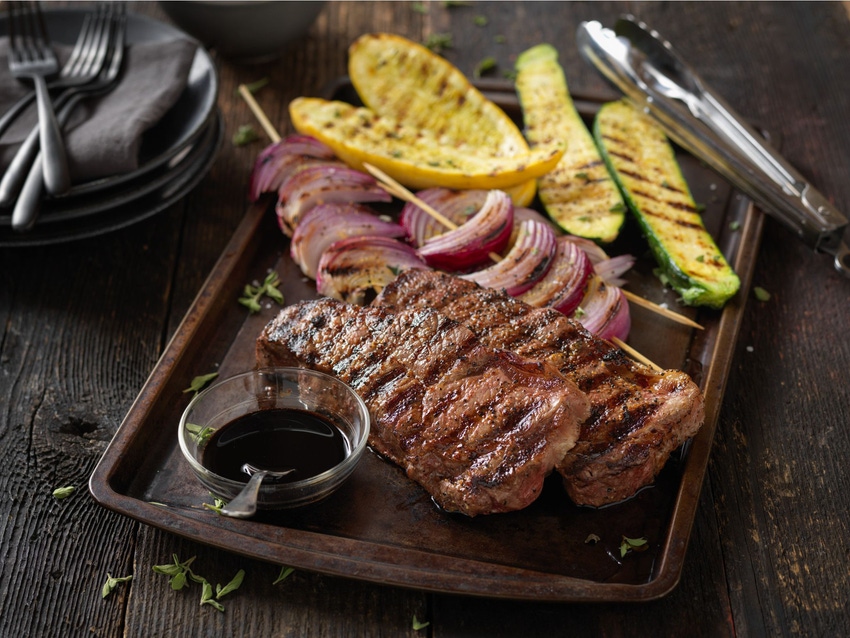When voters choose to impose burdensome regulations on producers, it’s the consumers — particularly the impoverished and hungry — who ultimately lose.
November 24, 2018

Like it or not, the voting booth is going to determine the future of farming and ranching. This is frightening to me because, while I think consumers have good intentions when they go to the polls, they don’t necessarily know the unintended consequences of the new regulations being imposed on agriculture and the impacts these ballot initiatives can have on producer input costs and the percentage of our disposable income we spend on food.
READ: Trade, animal disease & weather threaten 2019 food security
Take, for example, California. In the November 2018 election, 61% voters chose to pass Prop. 12, which would require all animals to be completely cage-free by 2022. This applies not only to veal, pork and eggs raised in California but also any products coming into the state from other sellers.
Per the language of the proposition, all housed chickens must have a full foot of floor space by 2020 and must be free range by 2020. Gestating sows must be given 24 feet of space per animal, and veal calves are required to have 43 feet of space per animal.
At quick glance, I’m sure many voters thought this was a common-sense change. In theory, why wouldn’t we want more space and comfort for animals?
However, the reality is that as elitists choose to make production agriculture more expensive while not actually addressing any real comfort or space concerns for animals, consumers are also voting against the impoverished and hungry people in their state. Yet, they probably don’t realize it.
Think about it. Only the elite and affluent can afford the Trader Joe’s or Whole Foods specialty meats and other products. Each label there promises the consumer every feel-good production method one could imagine.
READ: What do consumers look for at the grocery store?
While these options are great, and it’s wonderful to see producers earning a premium in a niche market, these alternatives don’t feed a hungry planet. And they certainly aren’t in the budget for those living paycheck to paycheck.
Sadly, voters are choosing animals over people, and in the case of Prop. 12, it’s pretty much a guarantee that food prices will go up in the upcoming years. What a sad result for the hungry, indeed.
Then, there are sin taxes.
Without question, I always, always vote against sin taxes. After all, we don’t live in a nanny state, and I don’t need Big Brother telling me how to live. Sure, some may seem like common sense. In the United States, we’ve seen taxes come to fruition on sugary drinks and cigarettes. However, I’m always wary of the government taxing my personal liberties and the goods that I choose to consume.
In fact, voters in my home state of South Dakota agreed with me, voting down a sin tax on cigarettes this election cycle, which would have earmarked funds for technical education.
READ: Home-grilled cheeseburgers cost more than 20 years ago
Now obviously I would never lump nutritious beef in the same category as processed sugar and addicting cigarettes. However, others would, and that’s why we continually see discussions about meat taxes pop up each election cycle.
Meat causes cancer, they say! Meat clogs your arteries, they cry! Meat is bad for the planet, they whine! Meat is murder, they scream!
We’ve heard it all and, unfortunately, these outright lies don’t represent the reality of the sustainability of cattle production and the healthfulness that beef has to offer a hungry planet.
Reporter Jack Guy for CNN recently discussed the “benefits” of a meat tax in the UK in an article titled, “Meat taxes would save many lives and cut health care costs, study says.”
Guy writes, “A team of researchers led by Dr. Marco Springmann, from the Nuffield Department of Population Health at Oxford University, estimated the rate of tax that would be necessary to offset health care costs related to red meat consumption.
“Researchers concluded that the UK government should introduce a tax of 79% on processed meat such as bacon, and 14% on unprocessed meat such as steak. In the U.S. these numbers would be 163% and 34% respectively.
“They also calculated the projected impact of a so-called meat tax on death rates due to chronic disease. With reduced consumption of red meat, the study, published on Nov. 6, claims there would be 220,000 fewer deaths from chronic disease per year around the world. Of that total, 6,000 deaths would be avoided in the UK and 53,000 in the US.”
The article is riddled with so much misinformation I wouldn't even know where to begin to counter each one. However, it’s obvious that in today’s society, where plant-based diets are perceived as “king,” that a proposition for a meat tax doesn't seem so far off.
And if that comes to fruition, I can’t even imagine the damage on demand it would do. After all, a meat tax would cause beef prices to skyrocket, and once again, the poor and hungry lose.
The opinions of Amanda Radke are not necessarily those of beefmagazine.com or Farm Progress.
About the Author(s)
You May Also Like





